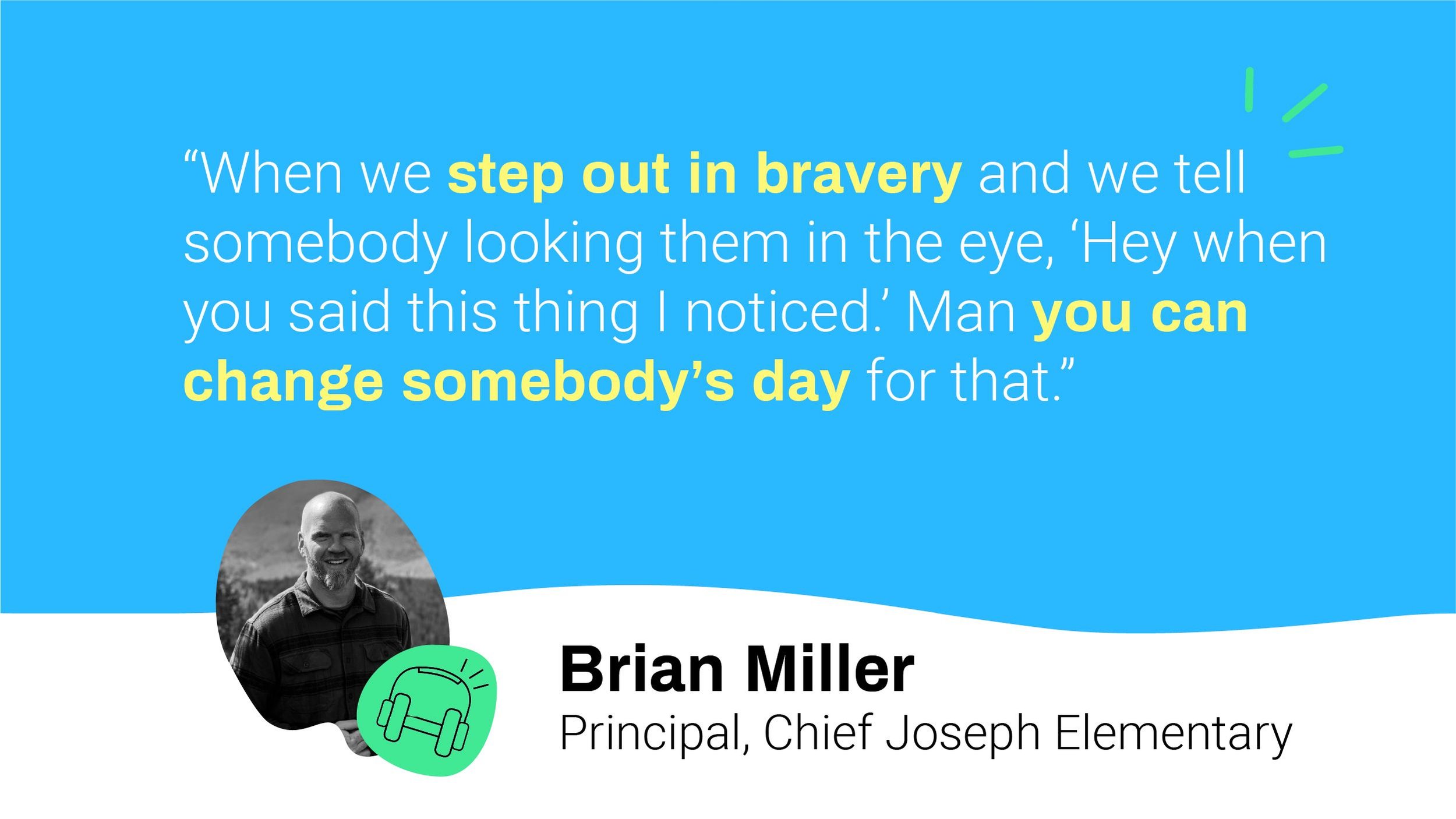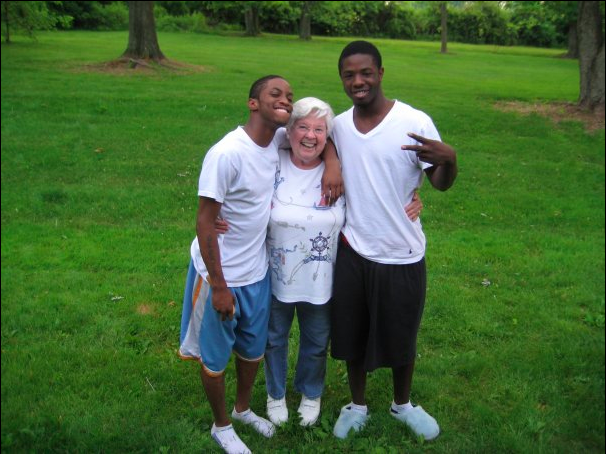It happened again. This time, in Thousand Oaks, California. You and I both know how the days and weeks to will play out.
“Our thoughts and prayers go out to . . .” we will hear whispered from podiums, while “Enough is enough” banners are posted on websites, blogs, and social media. And for a brief, brief moment, the country will be unified in grief, shock, and horror of what our country has become. Then someone will point the finger of blame. Then another. Then another. Until everyone is pointing, shouting, and condemning, calling for reform, calling for justice, and demanding someone does something to stop this madness.
All the while, someone somewhere will have made a plan, written a note, or posted a video. Right under our tear-stained cheeks and upturned noses. Just like they did in Columbine, almost 20 years ago.
“Eric Harris was a psychopath,” David Cullen concludes in his New York Times bestseller, Columbine, “he was a narcissist, he was a sadists. He wasn’t out to bully bullies, he was out to hurt the people he looked down upon . . . humans.” He wanted to destroy everyone, all of us. Yet fortunately, he only made it to thirteen. He had planned for many more.
According to the investigation that followed Columbine, Eric Harris wanted to go down as a legend. He wanted to make a mark bigger than the Oklahoma City bombings and he wanted to be remembered forever. So he planted bombs in the park on the other side of town, set to go off as a diversion for the cops. Luckily, they didn’t. Neither did the propane tanks in the cafeteria (which would have killed hundreds) nor the bombs in his and Dylan’s cars (which were set to detonate after the police and paramedics arrived, killing them too). In fact, Eric and Dylan never intended to enter the school. Their plan was to wait outside and pick off the surviving few as they fled the carnage of Columbine.
But things didn’t go according to Eric’s plan, hardly anything in fact, except for one seemingly minor detail: the media was there, and they granted Eric Harris his deepest dying wish. He became famous.
Dave Cullen, an author and elite journalist, was “one of the first reporters on the scene” at Columbine. He then spent the next ten years writing Columbine, which is “widely recognized as the definitive account” of the school’s massacre, and for many of the 300-plus pages of his heart-wrenching book, Cullen spends a great deal of time talking about who Eric Harris and Dylan Klebold were, what happened in the days prior, during, and after the infamous shooting, and how people from across the country responded.
But that’s not why he wrote the book. He wrote it because he was trying to figure out why Eric Harris and Dylan Klebold did it. Once answered, he concludes his book with the most important takeaway of his journey: how to prevent this from ever happening again, and who is responsible.
His findings are not extenuating.
Dave Cullen’s conclusion of who is responsible for Columbine and every shooting and massacre is not a familiar one, nor is it a popular, but it is the most accurate and reliable one.
The answer of who is responsible, according to Cullen, is us. We are responsible. Malcolm Gladwell says the same, but where Gladwell fails to provide a solution, Cullen does. It is us. We are the solution.
Let me explain. Or rather, let Cullen explain.
Almost 100% of the time, the perpetrator of mass killings is male, and “{f}or his glorious week,” Cullen explains, “the spectacle killer is the hottest star on earth. He dwarfs any sports champ, movie star, president, or pope . . . They spill a little blood, {and} the whole world knows who they are . . . His face splashed across every screen, his name across the lips of every person on the planet, all in the course of one day. Seems the more people you kill, the more you’re in the limelight.”
So, “If you’re planning a spectacle murder,” Dave Cullen once told a CNN anchor, “here’s what you do:
{There are} two routes to the elite club with the star treatment: body count, or creativity. Choose body count, and you’ve got to break the top ten. The media loves scorekeeping and will herald your achievements with a banner beneath the victims as they grieve. For creatives, go for originality and horror . . . Maximize the savage nature. Make us fear movies theaters, or churches or {school} - and a Joker costume at a Batman movie takes theatrics literally. Live TV was a great twist - only took two victims in Roanoke to get the big-star treatment. Surprise us.
The anchor was justifiably horrified, but that was the point. “These are the tactics the killers have turned on us so callously,” Cullen writes, “They cracked the media code. Easily.” And if the media care about ending this, “we in the media need to see our role as clearly as the perps have. We did not start this, nor have we pulled any triggers. But the killers have made us reliable partners. We supply the audience, they provide the show” (pg 380).
In these few short paragraphs, Cullen models the role we all need to take after events such as these occur: point the finger at ourselves, find where we are responsible, and take ownership of it. Just like Andy Dufresne.
Like everyone else, my favorite scene in Shawshank Redemption is the one where Andy Dufresne emerges from the septic tanking, raises his hands to the air, and is finally free from the deathly Shawshank prison. But it wasn’t until I read those lines from Cullen that I understood why I love that scene, and how Andy Dufresne was able to get there.
Throughout the first half of the movie, the audience is left in the dark as to Andy’s involvement with his wife’s murder. There’s that scene in the beginning, of him stumbling from his car, drunk, and carrying a gun, but nothing more. He adamantly denies killing his wife, but we are never fully convinced of his innocence. Till we hear the story of Elmo Blatch, an old cellmate of Tommy’s, and then our suspicions are confirmed, Andy Dufresne is completely innocent and absolved from the murder of his wife. Somehow, though, that isn’t enough. The movie isn’t entitled Shawshank Absolvement, it is Shawshank Redemption, and Andy is not yet redeemed. That comes later, after Tommy has been killed and Andy beaten, placed into solitude for calling the warden “obtuse”, and at the brink of ruin. And like Cullen, as he comes to grip with the harsh reality of what has happened and who is to blame, his hammer of judgement falls to no one else but himself.
“I killed her Red,” Andy he says with a dull sincerity to Morgan Freeman as they sit in the yard, leaning against the giant stone wall, locked in Shawshank Redemption. “I didn’t pull the trigger but I drove her away. And that’s why she died, because of me.”
Red leans down and sits on his heals, “That doesn’t make you a murderer,” he counters, and he’s right. But so is Andy. He didn’t pull the trigger, but he did play a part. A small part perhaps, or at the very least a forgivable part (no on goes to prison for being a bad husband), but a part none the less. And once Andy is finally able to see that, he is able to admit it. And once he admits it, Shawshank could no longer contain him. He is free.
A few scenes later, he climbs into a sewage pipe and crawls to redemption.
“We did not start this, nor have we pulled any triggers”, Cullen admits, echoing Red’s “That doesn’t make you a murderer.” But Cullen, like Andy, isn’t content with being absolved. He wants freedom. Freedom from a grey and deathly prison, freedom from guilt and shame, and freedom from fear that this will indeed happen again. So he accepts his portion of the blame, “we supply the audience, they provide the show.” He acknowledges his responsibility and admits his complicit role. Then, like Andy Dufresne, he climbs into the sewage pipe and beckons us to do the same.
We, on the other hand, continue to sit in horror and amazement, waiting for someone to unlock the cell.
“For the past few years,” Jason Kottke writes, “whenever a mass shooting occurs in the US that gets wide press coverage, the satirical news site The Onion runs an article with this headline written by Jason Roeder: ‘“No Way To Prevent This,”’ Says Only Nation Where This Regularly Happens’.”
After each mass shooting, our nation raises its hands in grief and disbelief, “How does this keep happening?” Then, because there is never a clear answer, we quickly defend ourselves, our beliefs, and our rights, leaving many people absolved, very few freed, and even fewer redeemed.
There are two definitions offered for redeemed:
the action of saving or being saved from sin, error, or evil.
the action of regaining or gaining possession of something in exchange for payment, or clearing a debt.
Both require an admittance. Both require action. Neither point to someone or something else.
I, like the rest of our country, desperately long for these headlines to be eradicated from our headlines. I’ve also been convicted by Cullen and Andy and believe that casting the blame onto others will only perpetuate the acts. But because I’m not a journalist, I cannot rest with Cullen’s admittance. I must find my own, as an educator.
So far, I’ve come up with three.
Purpose:
“Education is inherently selfish” I found myself saying to a room full of educators, “we spend so much time and effort convincing kids to pursue school and grades so they can better themselves and their future” I said, “we encourage them to follow their dreams and be whatever they want to be, but for what purpose?” I found myself trying not to look at a particular school that has geared their entire program around personalized learning and a system that focuses on each kid as an individual, that teaches each kid to learn at their own pace, in their own way, completely isolated from their peers.
Why school? Why do kids have to go? And why do they have to take the classes that they do? A school I once taught for attempted to answer that question with a giant poster that hung in the hallway for each student and teacher to read. “Do it for you,” and it bothered me every single day.
Is that why kids need to be in school? So that they can go to college, get a nice job, and buy nice things? Or is it so that they can collect experiences and enjoy life? So they can learn how to “Follow their heart”? If so, no wonder they’re miserable.
After they’ve pursued every relationship, dating the hottest boy or girl they can find, after they’ve driven the coolest car, bought the the newest technology, and worn the nicest clothes, what next? After sex, popularity, success, and whatever else their hearts desire. what happens when they’re still miserable, empty, and without direction?
Daniel Pink, author of Drive: The Surprising Truth About What Motivates Us, says, “When the product motive becomes unmoored from the purpose motive, bad things happen” (via). The purpose of education, as is written and expressed today, has become unmoored from the deeper more existential purpose: to discover our gifts and talents, to hone them, and then figure out ways to give them away. To serve others.
And for that, I am responsible.
Humanity:
My friend Glen Walenda once theorized on one of my recent blog posts, that Teachers and coaches (perhaps even parents) “often treat {children} as future people instead of people. We are so blinded by their potential we don't see them in the present.” In doing so, we concentrate on the superficial, the tangible, and the quantifiable measurements that will help them succeed (whatever that means) later on in life, when they’re future people.
Because that’s how we know we are doing a “good job,” when our students are scoring well and paying attention in class. It’s also how we’re failing.
The best comedy, according to George Carlin, is a process of digging through the layers of humanity. Instead of simple jokes, the best comedians spend their time talking about feelings and who we are, our loves and likes, our fears and nightmares, and the stuff that makes us, us. That makes them, them. The human being stuff. The stuff that no standardized test or classroom assessment can ever measure.
Curriculum, teaching strategies, and assessments are important and necessary to gauge learning, but how to live life, how to work through struggles and celebrate victories, how to engage humanity and find our purpose in life, these are what we stay alive for. These are why we learn. But because we cannot measure them, no funding is attached to them, and because it is easier to grade knowledge rather than character, education focuses on GPAs rather than character, compliance rather than curiosity; it focuses on the future people rather than the now people.
For that, I am responsible.
Humility:
The most “influential and inspiring people,” according to John Dickson, “are often marked by humility” which is “the noble choice to forgo your status, deploy your resources or use your influence for the good of others before yourself” (pg 24). Fred Rogers would agree. “The real issue in life,” he believed, “is not how many blessings we have, but what we do with our blessings. Some people have many blessings and hoard them. Some have few and give everything away” (via).
Schools, however, don’t often teach students to give their resources and blessings away. Instead, we focus on individualized learning, valedictorians, and high GPA’s. We focus on counting our blessings and building resumes.
We buy letterman jackets, award honor rolls, and crown kings and queens.
People of character, however, focus on how they can best give away their gifts and resources rather than hoarding them. They care more about their classmates, their community, and whoever else might be in need. They rarely focus on their own.
They care more about living in harmony than they do standing in the spotlight.
“Harmony,” the poet, theologian, and philosopher John O’Donohue states, is everything uniquely itself, “and by being uniquely itself, part of a greater community” (via). Sadly, I have not taught that enough in my classes.
I have focused on the uniqueness of the individual, but not on how their uniqueness fits into the great narrative. I have focused on their gifts, their talents, and dreams they want fulfilled, but I have not taught them well enough the responsibility of those gifts, and the joys of giving them to others. I have focused too much time on developing their resume virtues, not their eulogy virtues.
I didn’t pull the trigger on any mass shootings, but that doesn’t mean I don’t play a part or that I’m unable to prevent the next one. Because I’m an educator, I’m responsible for building and guiding a culture. And so far, I haven’t done the best of job.
For that, I am responsible.
Andy Dufresne crawled through “five hundred yards of shit smelling foulness, {we} can’t even imagine.” Dave Cullen did the same. For ten years. Then, like Andy, he emerged, clean and redeemed on the other side.
Like Andy and Cullen, we didn’t pull the trigger. But we have pushed each other away for the sake of ourselves. And that’s why we die.
If we, as a country, truly do believe enough is enough, that “No one should ever have to go through this. Period”, and that, names of victims on the back of shirts just isn’t enough, then we too must be willing to endure the worst we can imagine and take whatever responsibility we can upon ourselves and change. We must choose another rather than ourselves, our freedoms, and our rights.
If we can do that. Then, maybe, just maybe we too can emerge from this shit-smelling foulness that isn’t hard to imagine. And when we do, like Andy and Cullen, we too can be free, and clean on the other side.
We can find redemption.
For more on . . .
-N- Stuff : Education : Chapters to my book

















